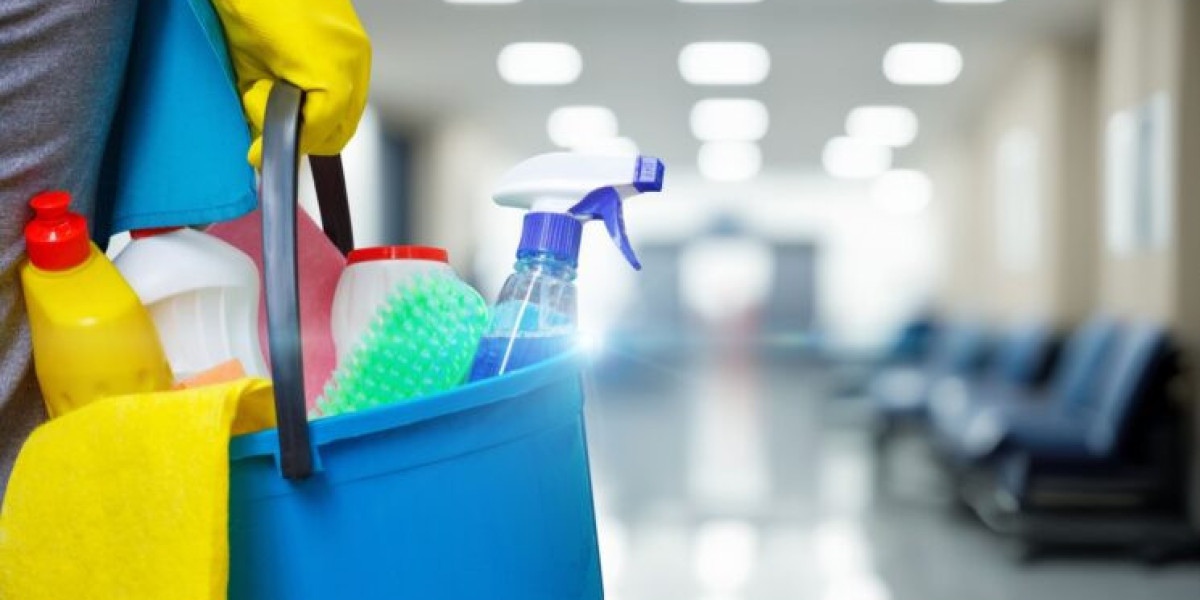In today’s world, hygiene is more than just a nice-to-have—it’s a business requirement. Whether your company focuses on home cleaning, car detailing, or both, maintaining high hygiene standards helps protect your team, impress your clients, and reduce liability.
The right tools make all the difference. Among them, nitrile gloves and quality cleaning products are your frontline defense. They're not just about looking professional—they help prevent cross-contamination and keep environments safe for everyone involved.
Why Hygiene Matters in Business Settings
Clients trust businesses that are clean, efficient, and transparent about safety. This is especially true in industries where your staff works inside people’s homes or cars. Both environments carry germs, allergens, and chemicals that, if mishandled, could create health risks.
Businesses that use gloves and proper cleaning agents show they care about both their customers and employees. Plus, visible hygiene practices build credibility and can even set you apart from competitors.
Why Nitrile Gloves Are the Smart Choice
Nitrile gloves have become the go-to solution in many industries for good reason:
They’re durable – more resistant to tears and punctures than latex.
They offer chemical protection – great for use with strong cleaners and disinfectants.
They’re latex-free – reducing the risk of allergic reactions.
For businesses that clean cars and homes, nitrile gloves allow staff to move safely between tasks like disinfecting surfaces, cleaning bathrooms, or handling automotive chemicals.
Use nitrile gloves when wiping down high-touch surfaces (steering wheels, door handles, light switches) or handling any chemical-based cleaning products. They protect your team’s hands and prevent the spread of germs.
Picking the Right Cleaning Products for the Job
Not all cleaners are equal. The wrong product can damage surfaces—or worse, fail to kill germs. Here's a simple breakdown:
In Car Cleaning:
Interior disinfectants: Use alcohol-based or quaternary ammonium cleaners for dashboards, gear shifts, and door panels.
Glass cleaners: Look for ammonia-free solutions that won’t damage tinted windows.
All-purpose cleaners: Use mild but effective degreasers for tough grime.
In Home Cleaning:
Surface sprays: Use non-toxic, multi-surface options for counters and tables.
Bathroom cleaners: Choose strong disinfectants to tackle mold, mildew, and bacteria.
Floor solutions: Use pH-balanced cleaners safe for hardwood, tile, or vinyl.
Make sure to store all cleaning products properly and clearly label them for staff.
When and Where to Use Gloves and Cleaners
Use gloves and disinfectants at every touchpoint. In cars, focus on:
Steering wheels
Door handles
Cup holders
Seat belts
In homes, focus on:
Light switches and door knobs
Kitchen counters and appliance handles
Bathroom fixtures
Remote controls and railings
Change gloves between tasks or rooms to prevent cross-contamination. For example, after cleaning a toilet, don’t move straight to the kitchen with the same gloves.
Training Staff on Best Practices
Having the right tools isn’t enough your staff needs to know how to use them correctly. A few tips:
Teach proper glove use: How to put them on, take them off, and dispose of them safely.
Match cleaners to tasks: Train on what to use where, and when.
Reinforce hygiene routines: Make hand washing, glove changes, and surface sanitation standard.
Document your protocols and update them regularly. Consistency keeps everyone on the same page.
Color-Coding and Organization
Many businesses use color-coded gloves and cleaning cloths for different zones, like blue for kitchens and red for bathrooms. This simple step reduces cross-contamination and makes training easier.
Also, keep gloves in accessible spots and make sure cleaning products are well-stocked and labeled. The easier you make it for your staff, the better they’ll follow your system.
Mistakes That Hurt Hygiene
Even with the best gear, poor habits can undermine hygiene efforts. Watch out for these common mistakes:
Reusing disposable gloves: Nitrile gloves are single-use. Reusing them increases contamination risk.
Using harsh cleaners on delicate surfaces: Always check compatibility before spraying.
Skipping gloves for “quick jobs”: Even small tasks can expose hands to bacteria or chemicals.
Avoid cutting corners—it’s not worth the risk to your team or reputation.
Communicating Clean Practices to Clients
Your hygiene standards are a selling point. Make sure your clients know about them:
Highlight the use of nitrile gloves and safe cleaning products on your website or brochures.
Mention them during service quotes or walkthroughs.
Train staff to explain what they’re doing and why.
These small touches build trust—and can lead to more referrals.
Final Thoughts
Whether your business cleans homes, cars, or both, staying hygienic is a core part of doing the job right. By equipping your team with nitrile gloves and reliable cleaning products, you protect their health, keep customers happy, and boost your professional image.
Make these tools standard. Train your team well. And never stop refining your system. Clean doesn’t just look good—it builds trust, reduces risk, and sets your business apart.








